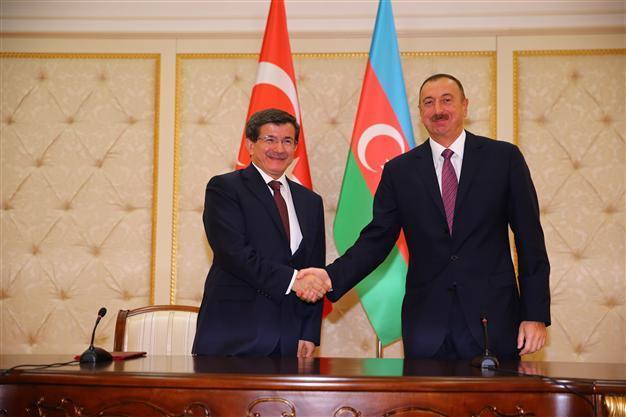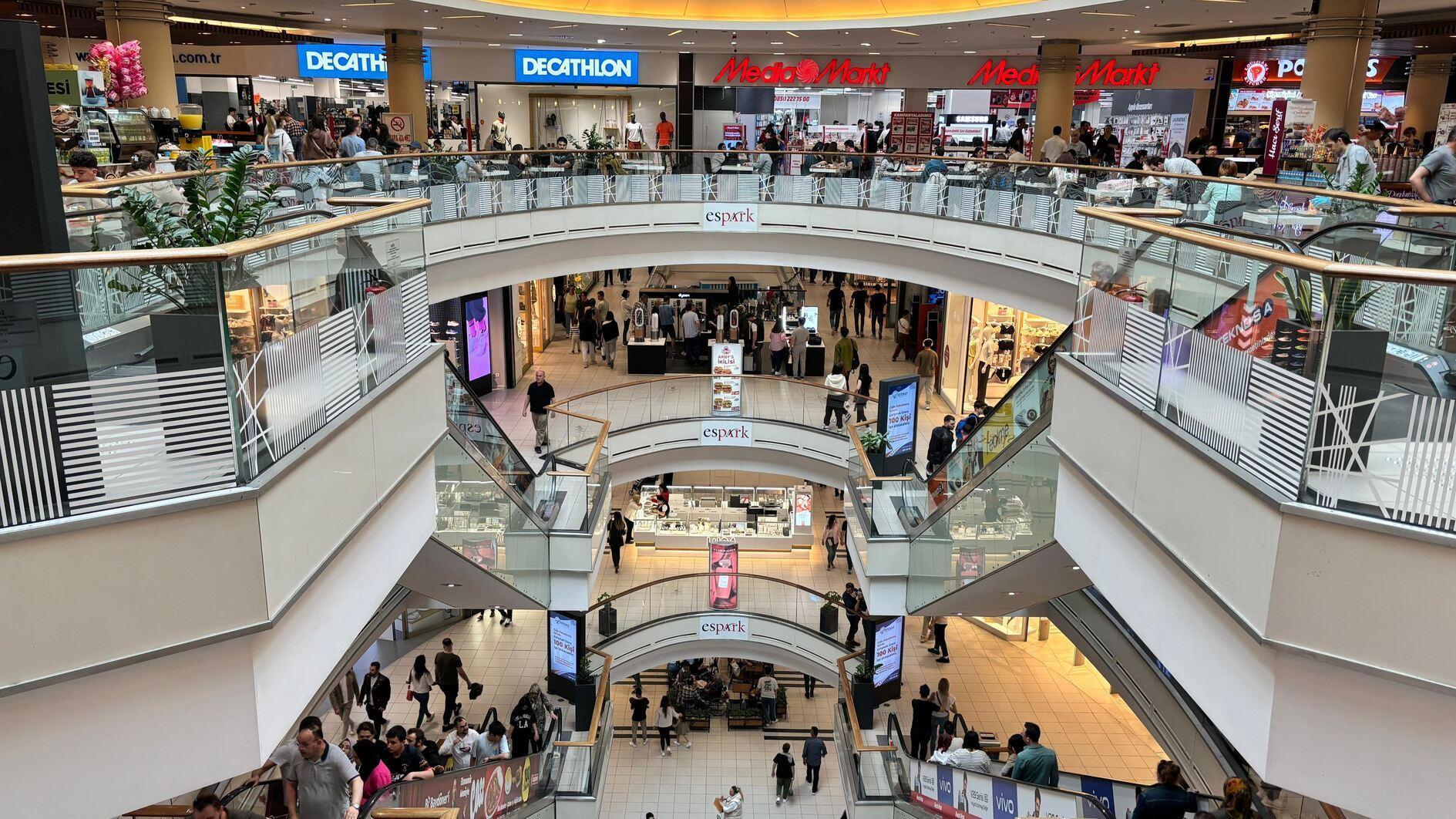Baku and Ankara vow to extend energy-focused cooperation to new levels
BAKU

AA Photo
Turkey and Azerbaijan have reiterated their pledge to develop their economies through mutual cooperation, particularly in the energy and defense industries, ahead of the inauguration of the first phase of a crucial gas transportation project between the two countries.Strong economic ties between Ankara and Baku, as well as future opportunities that will push the two countries forward, were at the forefront of the talks between Turkish Prime Minister Ahmet Davuoğlu and Azerbaijani President İlham Aliyev during the former’s first official visit as prime minister to Baku.
Speaking at a joint news conference on Sept. 19, Davutoğlu said Turkey and Azerbaijan have realized a number of projects together, referring to their developments as the “success story of two brothers who walk shoulder to shoulder.”
“While, unfortunately, there were clashes, severe stability and economic crises in many countries, Turkey and Azerbaijan have recorded remarkable progress and marked extraordinary economic success over the past 10 to 12 years,” he said.
The Azerbaijani president also hailed the “strong relations” between the two countries, saying bilateral trade and investment makes both countries stronger.
“Turkey and Azerbaijan are two fraternal countries that have supported each other for ages. We are building our future together as two independent countries,” he said.
The total value of bilateral investments has reached $20 billion, according to Aliyev, while Davutoğlu announced their determination to push the trade volume between the two countries to $15 billion by 2023 from the $5 billion of the existing levels.
Already-solid economic ties between the two countries have been blossoming, particularly around energy projects, in line with both countries’ individual foreign policy priorities and regional interests.
Turkey’s dream to become an energy hub and Azerbaijan’s efforts to position itself as a key energy supplier for Europe have coincided, allowing to parties to further engage in mutual projects.
The most important aspect of this cooperation is the Trans Anatolian Natural Gas Pipeline (TANAP), a pipeline that will transport gas from Azerbaijan’s Shah Deniz field to Europe through Turkey.
The Shah Deniz field in the Caspian Sea, one of the world’s largest gas fields, feeds the South Caucasus Pipeline, which is also known as the Baku-Tbilisi-Erzurum Pipeline, and the TANAP.
Shah Deniz II is expected to supply 10 bcm per year to Europe, in addition to the 6 bcm that Turkey will keep for its own needs.
Europe is also hopeful of the project in terms of reducing the share of Russian gas it consumes.
A groundbreaking ceremony to mark the launch of the first phase of the TANAP and South Caucasus Pipeline will be held in Baku on Sept. 20.
The ceremony that will be attended by Davutoğlu and Aliyev marks a milestone for the Southern Gas Corridor, the initial capacity of which is planned to be 16 billion cubic meters of natural gas.
Speaking a day before the ceremony, both Davutoğlu and Aliyev dubbed the TANAP as “the project of the century” and highlighted the significance of the project for Ankara-Baku relations, as well as for the region.
Davutoğlu said the gas project will change the perception of the Balkans and Caucasus as regions of conflict and will connect them as “regions of peace.”
Davutoğlu also said the heads of the two governments also discussed cooperation opportunities in the defense sector during the talks they held on Sept. 19.
“The defense industry is a strategic and crucial sector for us. Turkey and Azerbaijan are determined to realize many joint projects in the defense industry,” he said.
The Turkish defense sector has recently put its mark on the Azerbaijan International Defense Exhibition with 31 defense industry companies to represent the country, marking the largest single-country participation at the fair, which began Sept. 10.
















